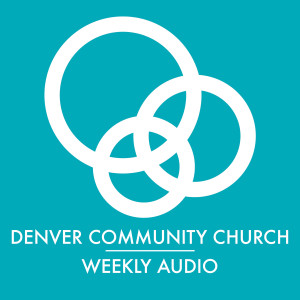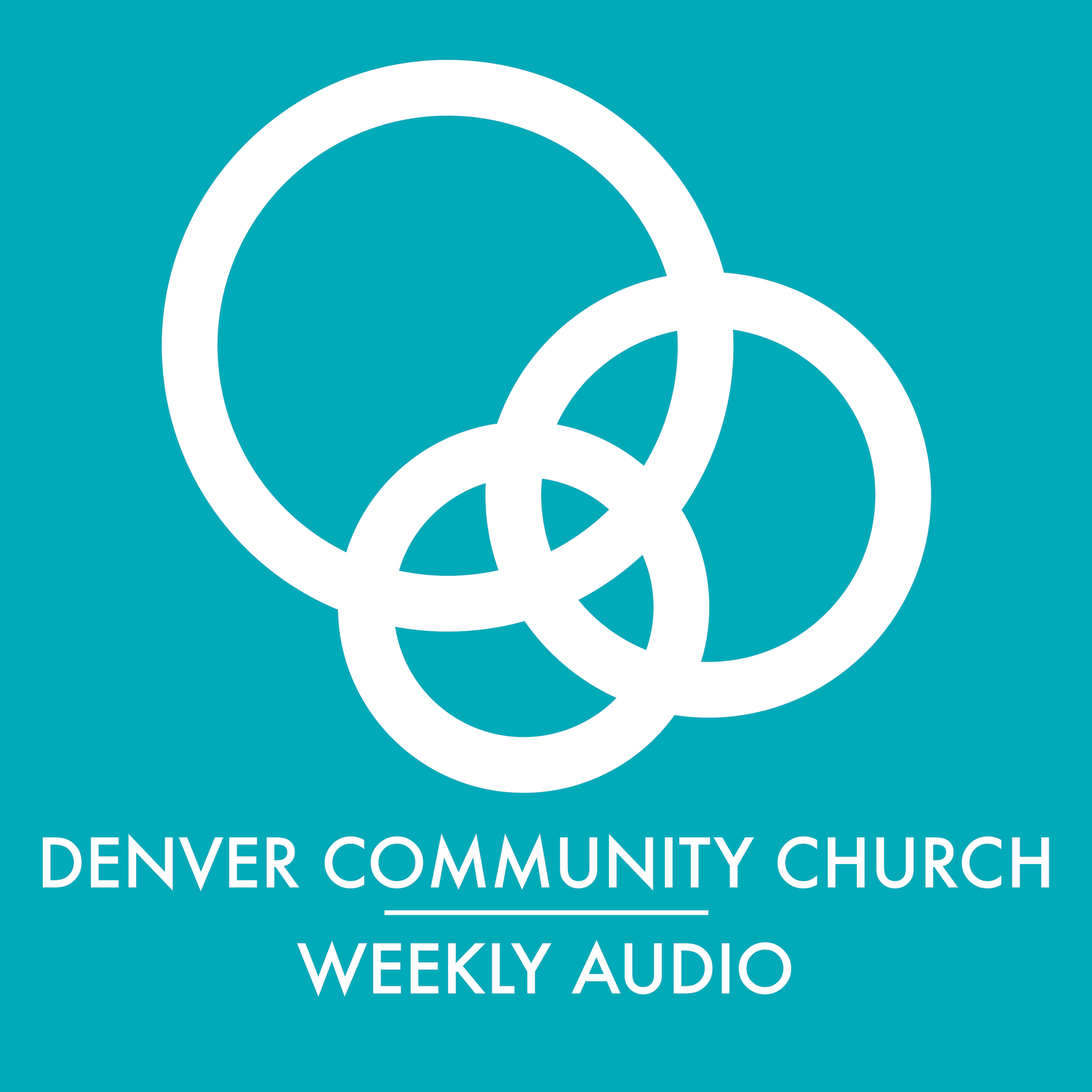Episodes

Sunday May 17, 2015
May 17, 2015: A New Thing Happening – Scott Oppliger
Sunday May 17, 2015
Sunday May 17, 2015
“The Kingdom of Heaven is near! Repent and believe this good news.” These are the first words Jesus preached according the Mark’s gospel. Which of course raises all kinds of questions. Questions like:
Is this David’s son?
Will he restore the fortunes of Israel?
When will he take the throne?
These questions and more swirled around Jesus in a time when the expectancy of the people were at an all time high. They had waited, hope and longed for this day. And now it was here. Jesus had come to fulfill the vocation given to Israel, but it was not what everyone expected it would be. It would be far more, but it would be sure to disappoint many.

Sunday May 17, 2015
May 17, 2015: A New Thing Happening – Michael Hidalgo
Sunday May 17, 2015
Sunday May 17, 2015
“The Kingdom of Heaven is near! Repent and believe this good news.” These are the first words Jesus preached according the Mark’s gospel. Which of course raises all kinds of questions. Questions like:
Is this David’s son?
Will he restore the fortunes of Israel?
When will he take the throne?
These questions and more swirled around Jesus in a time when the expectancy of the people were at an all time high. They had waited, hope and longed for this day. And now it was here. Jesus had come to fulfill the vocation given to Israel, but it was not what everyone expected it would be. It would be far more, but it would be sure to disappoint many.

Sunday May 10, 2015
May 10, 2015: Who Can Sing At a Time Like This? – Landon Lynch
Sunday May 10, 2015
Sunday May 10, 2015
The sons of David did not follow in the way of their father. Solomon, though wise, was drawn to the gods of his many wives. He became an arms dealer and forced many into slavery. And it went downhill from there. The Kingdom of Israel was divided into Northern and Southern Kingdoms. Baal and Asherah worship were rampant. The people forgot the God who brought them out of Egypt – so much so they turned to other kings for help.
So God gave them what they wanted, which led to their downfall. Assyria conquered the Northern Kingdom of Israel and the Southern Kingdom of Judah was sacked by the Babylonians. Many of God’s people were exiled. And there they sat unable to sing as they remembered Jerusalem.
Seventy Years after exile those from Judah were allowed to return, but things were not the same. The people of Israel considered themselves to be “slaves in their own land.” For nearly 400 years they waited and hoped for the one who would come in the name of David. They longed for the day the Kingdom of God would once again come to this earth.

Sunday May 03, 2015
May 3, 2015: Watch the Throne – Michael Hidalgo
Sunday May 03, 2015
Sunday May 03, 2015
David is riding a wave of success as far as kings go. He has united the people. He has subdued the Philistines. He has established the new capital, Jerusalem. He has brought the Ark of the Covenant to Jerusalem – signifying that God reigns. As Eugene Peterson says, “David takes his place as king, not in the usual sense, but as a witness that God is King.”
David’s kingship is marked by his being a servant of God, and he uses his throne to proclaim the rule of God. In fact, God’s rule and reign is often found in the Psalms of David. His time on earth served to point others to the fact that God was in really the One in charge. Which brings new light to the promise that God made to David. He told him his throne would be “established forever.” It’s not just a benefit for David, but for the world. Because it’s the kind of king David was that makes this promise so amazing.
The promise to David is far more about God’s rule and reign than it is those tied to the Davidic line. We know that the son’s of David wandered far from the tradition of their father. However, there still was the promise the people waited for. A son of David – “a shoot from the stump of Jesse” would come.

Sunday May 03, 2015
May 3, 2015: The Gospel of God – John Perkins
Sunday May 03, 2015
Sunday May 03, 2015
David is riding a wave of success as far as kings go. He has united the people. He has subdued the Philistines. He has established the new capital, Jerusalem. He has brought the Ark of the Covenant to Jerusalem – signifying that God reigns. As Eugene Peterson says, “David takes his place as king, not in the usual sense, but as a witness that God is King.”
David’s kingship is marked by his being a servant of God, and he uses his throne to proclaim the rule of God. In fact, God’s rule and reign is often found in the Psalms of David. His time on earth served to point others to the fact that God was in really the One in charge. Which brings new light to the promise that God made to David. He told him his throne would be “established forever.” It’s not just a benefit for David, but for the world. Because it’s the kind of king David was that makes this promise so amazing.
The promise to David is far more about God’s rule and reign than it is those tied to the Davidic line. We know that the son’s of David wandered far from the tradition of their father. However, there still was the promise the people waited for. A son of David – “a shoot from the stump of Jesse” would come.

Sunday Apr 26, 2015

Sunday Apr 26, 2015
April 26, 2015: Caring for Creation from a Place of Faith – Leah Kostamo
Sunday Apr 26, 2015
Sunday Apr 26, 2015

Sunday Apr 19, 2015
April 19, 2015: You Are Me – Michael Hidalgo
Sunday Apr 19, 2015
Sunday Apr 19, 2015
Generations after God invited Abraham to bless the world, the descendants of Abraham are forced into slavery in Egypt. Day after day they are exploited and day after day they cry out. And God hears their cry and delivers them from the powers of Egypt and the grip of Pharaoh. He lead his people to a mountain and says, “Be for me a holy nation of priests …”
God restates his invitation to Abraham to the people of Israel. He chooses them, for better or worse, to be those who carried the destiny of the world on their shoulders. Their answer to this invitation? A resounding “Yes!” And thus begins the journey of Israel as a nation working with God in renewing this world.

Sunday Apr 19, 2015
April 19, 2015: You Are Me – Landon Lynch
Sunday Apr 19, 2015
Sunday Apr 19, 2015
Generations after God invited Abraham to bless the world, the descendants of Abraham are forced into slavery in Egypt. Day after day they are exploited and day after day they cry out. And God hears their cry and delivers them from the powers of Egypt and the grip of Pharaoh. He lead his people to a mountain and says, “Be fore me a holy nation of priests …”
God restates his invitation to Abraham to the people of Israel. He chooses them, for better or worse, to be those who carried the destiny of the world on their shoulders. Their answer to this invitation? A resounding “Yes!” And thus begins the journey of Israel as a nation working with God in renewing this world.

Sunday Apr 12, 2015
April 12, 2015: Not For You – Jon Gettings
Sunday Apr 12, 2015
Sunday Apr 12, 2015
Tribes. In the Ancient Near East the center for living was your tribe. It was your family, bloodline, home, identity – it meant everything – and without it you were nothing. You worked for the well being of your tribe, accumulated possessions, fought battles, made alliances, to preserve the tribe. And it was this way for everyone in the known world at that time.
And with one word God blew all of that up. He spoke to Abram and said what the gods had said to others before Abram, “I will bless you.” But he did not stop there. He then told Abram, “all peoples on earth will be blessed through you.”
Wait, What?
This is new. Nothing like this had happened before. A tribe existing to bless other tribes? This call is not just for Abram, it is also the call for his descendants, namely the people of Israel. God chose them to be the people through whom he would redeem the world. And it is in this call, this blessing, this promise that the story of Jesus begins.

